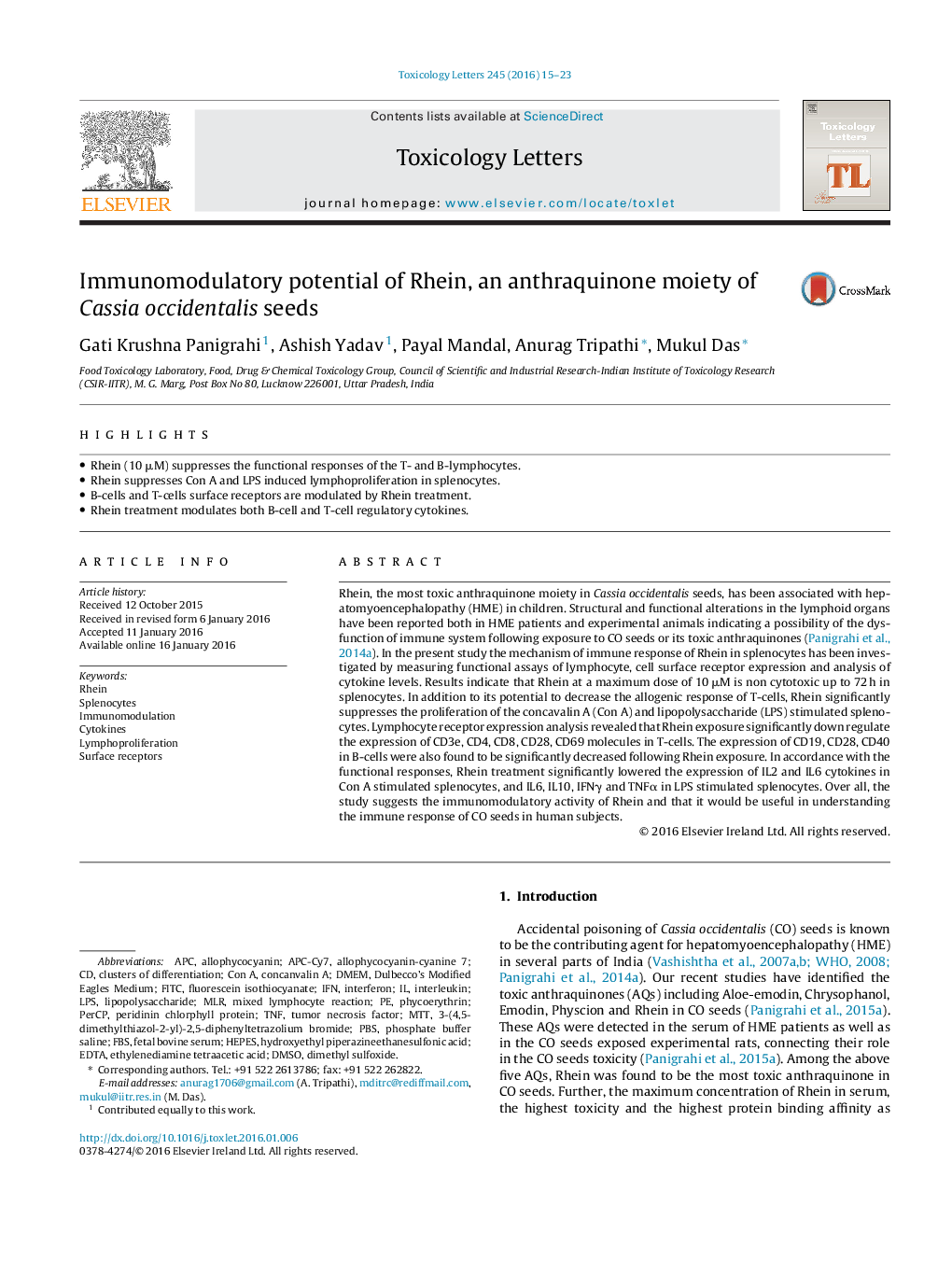| Article ID | Journal | Published Year | Pages | File Type |
|---|---|---|---|---|
| 2598510 | Toxicology Letters | 2016 | 9 Pages |
•Rhein (10 μM) suppresses the functional responses of the T- and B-lymphocytes.•Rhein suppresses Con A and LPS induced lymphoproliferation in splenocytes.•B-cells and T-cells surface receptors are modulated by Rhein treatment.•Rhein treatment modulates both B-cell and T-cell regulatory cytokines.
Rhein, the most toxic anthraquinone moiety in Cassia occidentalis seeds, has been associated with hepatomyoencephalopathy (HME) in children. Structural and functional alterations in the lymphoid organs have been reported both in HME patients and experimental animals indicating a possibility of the dysfunction of immune system following exposure to CO seeds or its toxic anthraquinones ( Panigrahi et al., 2014a). In the present study the mechanism of immune response of Rhein in splenocytes has been investigated by measuring functional assays of lymphocyte, cell surface receptor expression and analysis of cytokine levels. Results indicate that Rhein at a maximum dose of 10 μM is non cytotoxic up to 72 h in splenocytes. In addition to its potential to decrease the allogenic response of T-cells, Rhein significantly suppresses the proliferation of the concavalin A (Con A) and lipopolysaccharide (LPS) stimulated splenocytes. Lymphocyte receptor expression analysis revealed that Rhein exposure significantly down regulate the expression of CD3e, CD4, CD8, CD28, CD69 molecules in T-cells. The expression of CD19, CD28, CD40 in B-cells were also found to be significantly decreased following Rhein exposure. In accordance with the functional responses, Rhein treatment significantly lowered the expression of IL2 and IL6 cytokines in Con A stimulated splenocytes, and IL6, IL10, IFNγ and TNFα in LPS stimulated splenocytes. Over all, the study suggests the immunomodulatory activity of Rhein and that it would be useful in understanding the immune response of CO seeds in human subjects.
